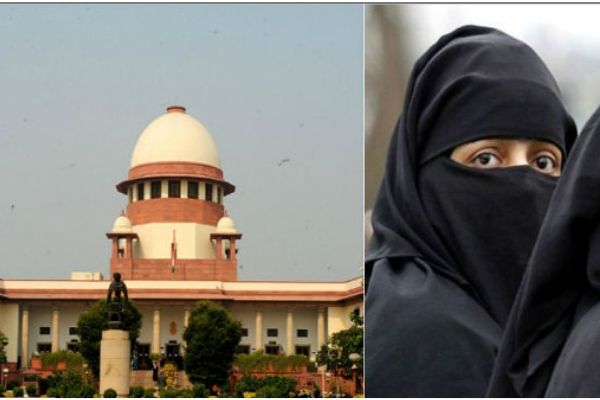The Triple Talaq bill was passed in the Rajya Sabha, relating to Muslim women and the protection of their rights on marriage in the Islamic system. Under this, a man can divorce his wife by uttering Talaq, and it is common among the Hanafi Islamic school of law and many other Islamic schools of thought. The divorce process is over a period of three months, and in the Hanafi system, it is that whoever divorces his wife does it three times, at the same time.
Actually, this type of Talaq is strictly prohibited under Islamic rules and regulations. Islam also allows divorce by Muslim women, that they can ask their husbands if they are not happy with them, and in Islamic term it is called khula. In the Indian constitution every religion is allowed to practice their own rules according to their constitution under personal laws.
In 2011, the divorce rate among Muslims was 0.56% and the Hindu community divorce rate was 0.76%. According to Hanafi School of thought, there are three types of Talaq, one is Hasan, the second is Ahsan, and the third is Bida.
Triple Talaq is a form of divorce that was practiced in Islam, where a man could divorce his wife by pronouncing Talaq (the Arabic word for divorce) three times at different times. Under the Hanafi rule, the pronouncement could be oral or written or in recent times delivered by electronic means such as telephone, SMS, email, or social media. The men did not need to cite any cause for the divorce and at the time of pronouncement after a period of Iddat during which it was ascertained whether irrevocable in the recommended practice awaiting period was required before each pronouncement of Talaq during which reconciliation was attempted. However, it had become common to make all three pronouncements in one sitting, while the period was frowned upon.
It was not prohibited that a divorced women couldn’t remarry her first husband if she wanted to, but there is a rule that firstly she has to marry another man and to live together with him. This practice in Islamic law is called Nikah Halala, that she will be ‘purified’ for the first husband after marrying another man.
The Supreme Court described Triple Talaq as “manifestly arbitrary“, and said that “it allows a man to break down [a] marriage whimsically and capriciously.” In the Hadith, it is reported that Anas stated that “Muhammad had accused a man of mocking the Quran by Talaq pronounced thrice in one time continuously. From Muhammad to the first two years of Umar’s reign as caliph was only considered as single divorce.”
Triple Talaq has been supported by the All India Muslim Personal Law Board (AIMPLB) a non-governmental body that supervises the application of Muslim personal law. It believes that the state doesn’t have the right to intervene in religious matters. The AIMPLB and lawyer Kapil Sibal had said that “though instant talaq can be thought of as a sin by some, but that setting the validity of customs and practices of a community is a slippery slope.”
The supreme court examined whether triple Talaq has the protection of the Constitution which guarantees all the fundamental rights to profess practice and to propagate their religion. The court wanted to establish whether or not triple Talaq is an essential future of Islamic belief and practice. Abu Hanifa and Malik Ibn Anas considered it irrevocable despite its illegality. Al-Shafi considered it permissible but Ahmed Ibn Hamble considered is to be invalid.
It is also largely disapproved by Muslim legal scholars many Islamic nations have barred the practice including Pakistan and Bangladesh although it is technically legal under Sunni Islamic law. It is based upon the belief that the husband had the right to be rejected or dismissed his wife with good grounds.
The AIMPLB had told the Supreme Court that women could also divorce so that the husband couldn’t pronounce triple Talaq according to (AIMPLB). Sharia grants the rights of divorce to all Muslims if they aren’t happy with each other. But, most of this is in the advantage of men.

